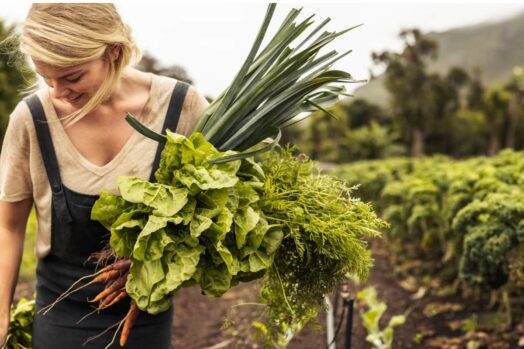
IRCC has announced that it is extending the Agri-Food Immigration pilot and removing annual occupational limits for program participants.
Find out if you are eligible for Canadian immigration
Today Immigration Minister Sean Fraser said the Agri-Food Pilot Program will run until May 14, 2025. The pilot program was established to help ease the transition of experienced workers in the agricultural and food industries to permanent residence in Canada.
The Minister also announced the lifting of the annual occupational ceilings. Canada Immigration, Refugees and Citizenship (IRCC) says removing these limits will provide an opportunity for more eligible candidates to apply. IRCC will also make additional changes by the end of the year. The department will introduce new changes to the pilot in stages, such as:
- Increase access to the open work permit for family members of pilot program participants, regardless of job skill level of candidates;
- Giving unions the ability to attest to a candidate’s work experience as an alternative to employer reference letters;
- Applicants residing in Canada will have the option to meet the job offer requirement, which includes the median salary requirement for the offer, or they can meet the education requirement (including an educational credential assessment verification); and
- The pilot will begin accepting work experience gained under an open work permit for vulnerable workers. IRCC says this will give more workers a chance to qualify.
Canada Agrifood Immigration Pilot was launched in 2020 with the intention of helping reduce labor shortages in the meat processing, mushroom production and greenhouse and livestock industries.
When announced, IRCC said it would admit up to 2,750 principal applicants plus their family members annually for the next three years.
The application deadline for the pilot was May 14, 2023.
Recent job vacancy data for February 2023 shows that there are more than 243,000 people in Canada employed in the agriculture, hunting, fishing and forestry sector and more than 14,000 open jobs. The industry has been hit hard by the COVID-19 pandemic, resulting in plant closures, market fluctuations, and supply chain delays.
Agri-food pilot announcement – An announcement concerning the Program pilote sur l’agroalimentaire
The Honorable Sean Fraser, Minister of Immigration, Refugees and Citizenship, will make an announcement on the labor market needs of the agri-food sector and the strengthening of Canada’s food supply system. Minister Fraser will be accompanied by Parliamentary Secretary Francis Drouin, on behalf of the Honorable Marie-Claude Bibeau, Minister for Agriculture and Agri-Food.
What occupations are eligible for the program?
Occupations and industries eligible under the pilot include:
Manufacture of meat products;
- retail butcher shops
- industrial butcher shops
- Farm supervisors and specialized livestock workers
- food processing workers
Greenhouse, nursery and floriculture production, including mushroom production;
- Farm supervisors and specialized livestock workers
- farm workers in general
- Harvest workers.
Animal production, excluding aquaculture:
- Farm supervisors and specialized livestock workers
- Farm workers in general.
Candidate Eligibility
Candidates for the program must also meet additional eligibility requirements, such as:
- 12 months of full-time non-seasonal Canadian work experience in the Temporary Foreign Worker Program in one of the eligible occupations;
- a Canadian Language Benchmark level 4 in English or French;
- the foreign equivalent of a secondary level education or higher; and
- an indeterminate job offer for full-time, non-seasonal work in Canada, outside of Quebec, at or above the prevailing wage.
meat processing sector
Employers in the meat processing sector who wish to use the pilot program will receive a two-year license. Labor market impact assessment. The plan must describe the employer’s plan to help the temporary foreign worker obtain permanent residence.
IRCC says unionized meat processors require a letter of support from their union and non-unionized meat processors will need to meet additional requirements to ensure the labor market and migrant workers are protected.
reference: www.cicnews.com